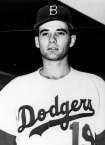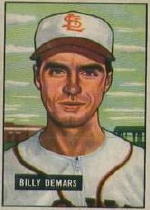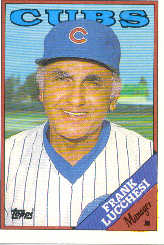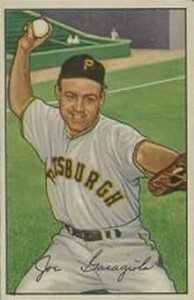Pitcher Joe Landrum had a lot of laughs in his brief baseball career. With gratitude and grins, he answered questions by mail recently.
“Tom!
You had to come to the park EARLY if you wanted to see me pitch!
[Fellow southerner] Red Barber made it a point to come talk to me and his advice was ‘Don’t let those yankees [not the team] bother you. They love the ‘southern drawl.’
Somebody asked Roy Campanella the same question [what’s it like having him for a batterymate]. His answer was that, so far, I had thrown nothing that had gotten past the plate.
Bill [Joe’s son] was a big improvement over the ‘old model.’ He loved relief pitching and I hated it. Just never did enjoy the game from that standpoint. wish I could have a little more time to get used to the ‘bigs.’
In retrospect, I have come to the conclusion that it was just a big thrill to have played the sport in sandlots, American Legion, college at Clemson [where he earned All-American honors!], GOOD minor league records at all levels, and at least a shot with the Dodgers.
Good health to you,
Joe”





